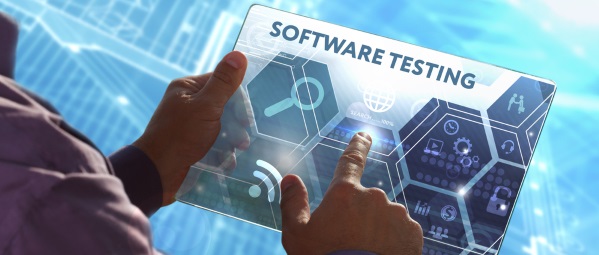posted on Oct 23, 2018 by Dominique Raviart

We recently caught up with TestingXperts (Tx), a software testing/QA specialist. Tx was set up in 2013 and has presence in Harrisburg, PA, London, and Chandigarh and Hyderabad in India. Revenues of Tx in 2017 were $15m, and its current headcount is 500.
The model of the company is based on Indian delivery: currently, around 80% of its personnel are located in India, primarily in Hyderabad and Chandigarh, with the remaining staff mostly located in:
- The U.S., where it has a sales office and onshore delivery center in Harrisburg, PA. with 25 personnel, a sales office in NYC, with plans to open sales offices also in Texas and Toronto
- London, U.K.
- Melbourne
- Amsterdam.
Portfolio specialization around IP-based offerings is TestingXperts’ priority
To drive its differentiation, Tx continues to expand its service portfolio to specialized and next-gen services such as mobile testing, UX testing, DevOps/continuous testing, and data migration testing. Newer offerings include testing of AI, blockchain, chatbots, and infrastructure-as-Code (IaC). Tx dedicates a high percentage of its revenues, ~5%, to internal R&D, and has developed eight IPs in support of these offerings.
IaC is unique to Tx; it tests the scripts that define servers, set up environments, balance loads, open ports, based on tools from ISVs such as Hashicorp’s Terraform, Ansible and puppet. Tx has created a testing framework, Tx-IaCT, for writing the python scripts that are used for validating that the right cloud infrastructure has been provisioned, conforms to specific benchmarks such as CIS standards (around server configuration, for security purposes) for AWS and internal corporate rules. Tx-IaCT is a differentiator for Tx. It continues to invest in it, expanding from AWS and Azure to Google Cloud. Tx is also expanding its test suite to industry-specific standards such as banking’s PCI and U.S. healthcare’s HIPAA.
The IP that Tx currently uses the most is Tx-Automate. It is a continuous testing platform that pre-integrates DevOps software tools such as CI, test management, defect management, and static analysis tools and test support activities, such as test data management, and web services/API testing. Tx-Automate integrates with Selenium for web-based applications and Appium for mobile applications, as well as with more traditional test execution tools such as Micro Focus UFT and Microsoft’s Visual Studio.
Along with Tx-Automate, TestingXperts has created mobile device labs in Chandigarh and in Hyderabad, with a smaller one in its Harrisburg facility. TestingXperts maintains its own lab, despite the abundance of cloud-based mobile labs, for several reasons. It provides access to real devices, rather than a mix of devices and emulations. The company also highlights that owning its own labs with 300 devices allows it to offer more competitive services to its clients and brings it flexibility. Along with the test labs, Tx has developed a set of core scripts based on Appium and Selendroid.
Conclusion
To some extent, the arrival of digital testing and other next-gen testing offerings (such as UX testing, crowdtesting, AI automation and testing, and RPA/chat bots) is redefining what ‘state of the art’ means for software testing services. With testing becoming much more technical, NelsonHall is finding that expertise-based offerings are no longer sufficient, and more comprehensive IP-based offerings are becoming the new norm.
With this in mind, it is refreshing to see that a small testing firm can bring specialized offerings (such as IaC testing) to market that few other vendors have.
